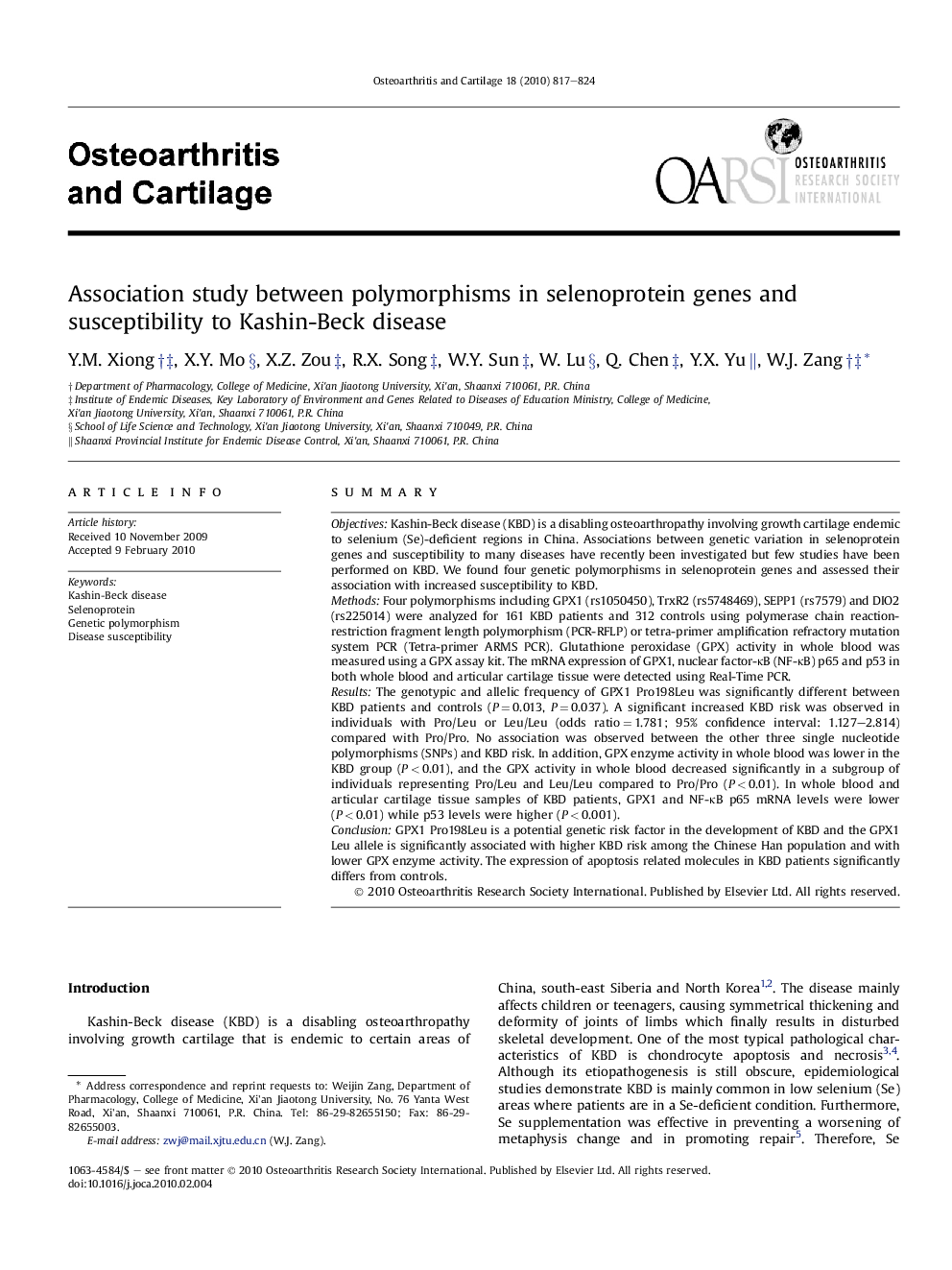| Article ID | Journal | Published Year | Pages | File Type |
|---|---|---|---|---|
| 3380370 | Osteoarthritis and Cartilage | 2010 | 8 Pages |
SummaryObjectivesKashin-Beck disease (KBD) is a disabling osteoarthropathy involving growth cartilage endemic to selenium (Se)-deficient regions in China. Associations between genetic variation in selenoprotein genes and susceptibility to many diseases have recently been investigated but few studies have been performed on KBD. We found four genetic polymorphisms in selenoprotein genes and assessed their association with increased susceptibility to KBD.MethodsFour polymorphisms including GPX1 (rs1050450), TrxR2 (rs5748469), SEPP1 (rs7579) and DIO2 (rs225014) were analyzed for 161 KBD patients and 312 controls using polymerase chain reaction-restriction fragment length polymorphism (PCR-RFLP) or tetra-primer amplification refractory mutation system PCR (Tetra-primer ARMS PCR). Glutathione peroxidase (GPX) activity in whole blood was measured using a GPX assay kit. The mRNA expression of GPX1, nuclear factor-κB (NF-κB) p65 and p53 in both whole blood and articular cartilage tissue were detected using Real-Time PCR.ResultsThe genotypic and allelic frequency of GPX1 Pro198Leu was significantly different between KBD patients and controls (P = 0.013, P = 0.037). A significant increased KBD risk was observed in individuals with Pro/Leu or Leu/Leu (odds ratio = 1.781; 95% confidence interval: 1.127–2.814) compared with Pro/Pro. No association was observed between the other three single nucleotide polymorphisms (SNPs) and KBD risk. In addition, GPX enzyme activity in whole blood was lower in the KBD group (P < 0.01), and the GPX activity in whole blood decreased significantly in a subgroup of individuals representing Pro/Leu and Leu/Leu compared to Pro/Pro (P < 0.01). In whole blood and articular cartilage tissue samples of KBD patients, GPX1 and NF-κB p65 mRNA levels were lower (P < 0.01) while p53 levels were higher (P < 0.001).ConclusionGPX1 Pro198Leu is a potential genetic risk factor in the development of KBD and the GPX1 Leu allele is significantly associated with higher KBD risk among the Chinese Han population and with lower GPX enzyme activity. The expression of apoptosis related molecules in KBD patients significantly differs from controls.
